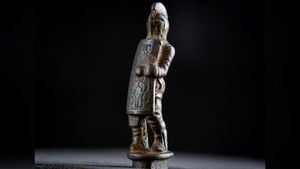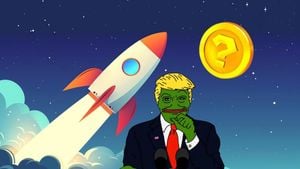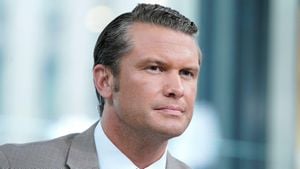Donald Trump's proposed governing strategy known as Project 2025 has taken center stage as the former president positions himself for another run at the White House. With the 2024 election looming, this comprehensive platform has sparked heated debate among both conservatives and Democrats.
At its core, Project 2025 outlines aggressive policy proposals intended to resonate with Trump's base, aiming to reshape federal operations should he secure another term. Spearheaded primarily by the Heritage Foundation, this roadmap includes sweeping directives on immigration, healthcare, and environmental regulations, all framed to align with Trump’s vision of America.
During the summer of 2024, Project 2025 came under fire from opponents who painted it as starkly extreme, highlighting areas such as its intention to eliminate federal agencies deemed unnecessary. For many, the document was not just policy but perceived as emblematic of the hard-line tactics associated with Trump’s previous presidency. The Democratic National Convention prominently featured this narrative, with party members rallying against its policies.
Internal research painted another picture, showing many within the Republican party quickly distancing themselves from Project 2025. Citing Trump’s own disavowal of the blueprint, several candidates who benefited from Heritage Foundation funding began to publicly downplay their association with the document. This left the think tank scrambling to mitigate damage, resorting to firings and modifying the launch strategy for accompanying publications.
Kevin Roberts, the president of the Heritage Foundation, found himself at the center of this political storm. Originally viewed as one of Trump’s staunchest allies, Roberts was thrust from favor due to the participation of the Heritage Foundation on the document when the criticism hit. At one point, Trump explicitly denied knowledge of Project 2025, stating he had no idea who even composed it.
This backlash drew attention not only to the document but also prompted introspection among conservative leaders about the future of the Republican party. The apparent conflict between Trump’s administration and conservative think tanks like Heritage highlighted fissures within the party as it attempted to reconcile the traditional conservative base with the populist approach represented by Trump.
Despite the insistent denials, internal communications revealed Trump and his circle were wholly aware of the project and even praised its architects at previous events. This contradiction was particularly troubling for those involved, stirring doubts about their future strategies approaching November’s elections.
The dynamics surrounding Project 2025 continued to evolve, particularly as public opinion polls indicated increasing skepticism of the project among voters. A survey indicating over half of respondents possessed negative views of Project 2025 showcased the challenges GOP candidates faced as they endeavored to walk back their support. The Heritage Foundation’s efforts seemed more like damage control as the midterm elections loomed larger on the horizon.
Project 2025 has also drawn scrutiny from groups such as 314 Action, which targeted politicians who took financial support from the Heritage Foundation. They called for several Republican House members to return their donations, claiming hypocrisy as these representatives attempted to distance themselves from the very think tank funding their campaigns. This confluence of events revealed the dark underbelly of political funding and the high stakes associated with aligning with controversial initiatives.
Overall, Project 2025 sits as both symbol and reality for not just Donald Trump but for the party itself as it navigates this turbulent political waters. This struggle raises pertinent questions about the unity and direction of the GOP heading toward the 2024 presidential election. Will Trump manage to revisit the top of the ticket with the backing of the very groups pushing Project 2025, or will his aggressive policy blueprint spark enough dissent to unravel his influence within his party?



